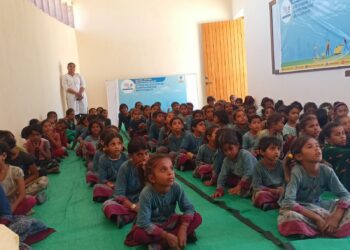Ferrero’s open acknowledgment of its sustainability hurdles sets a valuable precedent for corporate transparency.
One of the most pressing issues identified is human rights within its supply chain, particularly concerning child labor.
NEW DELHI (India CSR): In its 16th annual Sustainability Report, confectionery giant Ferrero has disclosed ongoing human rights concerns, environmental risks, and compliance issues across its global supply chains. Despite commendable progress in sustainability metrics, the 2024 report, covering the period from September 1, 2023, to August 31, 2024, highlights systemic challenges, including the persistent issue of child labor, particularly in Türkiye’s hazelnut farms.
Child Labor in Hazelnut Supply Chain: A Stark Admission
One of the most critical revelations in Ferrero’s 2024 Sustainability Report is the identification of 3,020 children working on hazelnut farms in Türkiye. This discovery was made through Ferrero’s ongoing collaboration with the International Labour Organization (ILO). The children were subsequently referred to schools and social support systems.
This disclosure underscores the vulnerability of agricultural supply chains and the need for continuous intervention. While Ferrero has taken proactive steps, the report admits that child labor remains a high-risk area needing “constant and targeted remediation.”
***
Cocoa Farming in West Africa: A Complex Web of Poverty and Disease
The report also draws attention to cocoa farming in West Africa, where poverty, aging plantations, and disease outbreaks like the swollen shoot virus continue to jeopardize farmer incomes and livelihoods. These factors make sustainable farming practices difficult to implement and scale, highlighting the interconnectedness of economic and human rights issues in the food industry.
***
Palm Oil and Deforestation: Gaps in Full Traceability
Ferrero states that 97% of its palm oil is verified as deforestation-free. However, 3% remains under investigation due to alerts from Starling satellite monitoring systems. These alerts potentially indicate deforestation risks, suggesting that complete traceability remains elusive, especially in regions with complex land-use dynamics.
***
Environmental Impact: Scope 3 Emissions and Waste Surge
Ferrero acknowledges that Scope 3 emissions—those generated by suppliers and consumers—represent the most difficult aspect of its climate mitigation strategy. Although the company earned a ‘B’ score in CDP climate disclosure, it concedes that deeper efforts are required to bridge gaps in emission reduction and risk transparency.
Additionally, the company generated over 130,000 tonnes of waste during the fiscal year, attributed in part to building demolitions. Due to changes in measurement methodology, the percentage of recovered waste declined from 97.92% to 89.32%, painting a less favorable waste management profile.
***

Water Scarcity: A Rising Business Risk
The report flags water scarcity as an emerging business risk across Ferrero’s manufacturing operations and agricultural supply chains. Crucially, several plants have yet to report on key water KPIs, signaling a gap in performance tracking and data transparency.
Packaging Challenges: Designing vs. Reality
Ferrero continues to face “significant challenges” in revamping its complex packaging formats. Despite improvements in recyclable packaging design, actual recycling is hindered by poor infrastructure. The report acknowledges a “disconnect between design and practical recyclability”, especially due to the limited availability of food-grade recycled plastic in many countries.
Marketing Compliance and Brand Integration: A Work in Progress
The confectionery major also identifies non-compliance in online and website marketing as areas requiring urgent attention. Approximately 11.11% of online advertising and 33.33% of Ferrero-owned website promotions failed to meet compliance standards in 2024. Furthermore, integrating newly acquired brands into Ferrero’s sustainability framework remains a formidable challenge.
***
Lessons for Responsible Business
Ferrero’s open acknowledgment of its sustainability hurdles sets a valuable precedent for corporate transparency. For Indian corporations and global players operating in or sourcing from India, this report is a reminder of the deep-rooted complexities in managing human rights, environmental impact, and compliance in global operations.
The confectionery leader’s experience underscores the need for collaborative action, not only within the company but across sectors, governments, and civil society. It also emphasizes that sustainability is not a checklist but a continuous journey—one that requires both vigilance and empathy.
(India CSR)






















